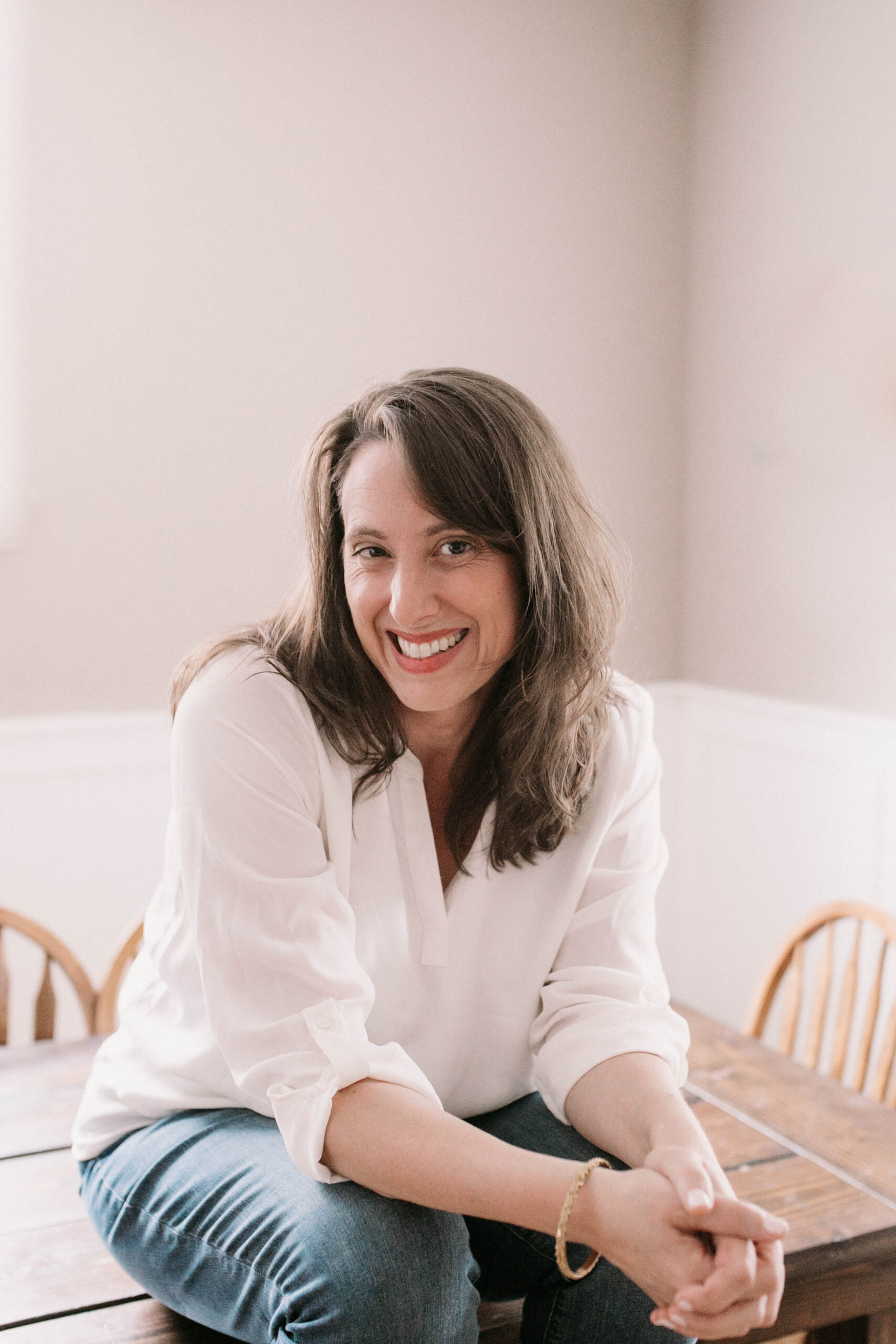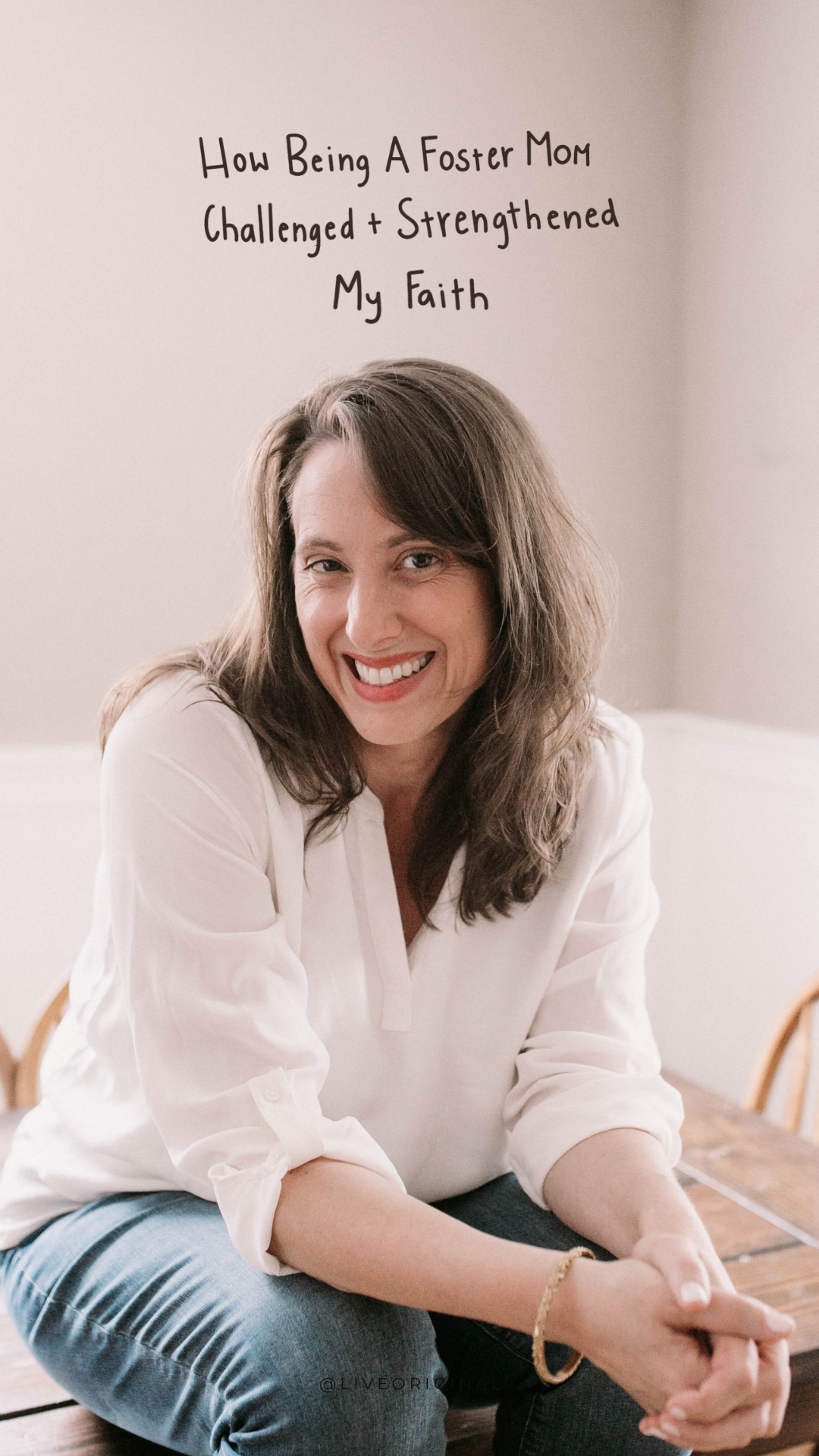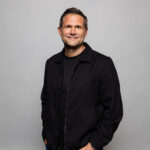My husband, Luke, and I attended our first foster-parent training with Child and Family Services in 2002, bringing only our experience working with orphaned children in Guatemala, our good intentions sprinkled in faith, and the hazy concept of foster care gained from a safe distance. Little did I know twenty years ago that becoming a foster parent would consistently illuminate this truth on this winding journey: God is always with me, before me and behind me.
When Luke and I finished our ten-week training in Buffalo, New York, our intention was to ease into foster care by doing weekend respite care. We were both twenty-five, had no kids, and lived in a two-bedroom apartment. Little did we know that there’s no such thing as “easing in.” It would be a helicopter drop in the middle of the ocean.
Because Luke and I each had a pulse and no criminal records, we were immediately granted status as caregivers to meet the urgent need in our community at the end of our ten-week training. We were tapped on the shoulder and asked to consider “therapeutic” foster care. While a case could be made that any child brought into state custody needs a high level of attention and care from a team of foster parents and professionals, “therapeutic” is the label reserved for cases when trauma manifests in high behavioral needs. This requires extra skill. We were a bit flattered at this invitation, and curiosity piqued our interest. Luke and I were not overly confident—we knew this wouldn’t be a breeze—but we were willing to say yes in our youthful optimism and energy, motivated by our understanding of what it meant to put our faith into action.
With the ink still drying on our foster certificate, I said yes to the phone call asking us to take nine-year-old Dion and his six-year-old brother, Royal, who were in the therapeutic foster care program. The state vehicle pulled into our long driveway with two boys buckled in the back seat. I hospitably held the garbage bags holding their few possessions as I swung open our front door and helped the boys inside. As my heart pounded behind my welcoming smile, I showed them their room with new comforters on the beds and a brightly colored rug. I watched as they took it all in, their eyes darting around the room. I gave them a tour of the kitchen, stopping at the fully stocked snack cupboard. Not more than an hour after the caseworker dropped them off, I snapped a picture of Royal licking gooey brownie batter off spoons. That afternoon and evening included a game, dinner around the table, a TV show, and several bedtime stories. “How does it feel to be a mom?” a friend asked me on the phone after I said good night to the boys. “So far so good” was my happy, confident reply, seven hours in.
At 3:00 a.m., the wall between our bedroom and the boys’ reverberated with gleeful shouting. I put on my robe and opened their door. The floor, pillowcases, and bedspreads were completely covered in a sea of white, waxy paper strips. Both boys were jumping on their beds, throwing Fruit-by-the-Foot snack wrappers in the air like confetti. Just a few hours after I had prayed for the boys to feel love and safety in our home and had drifted off to sleep, they silently tiptoed into the kitchen, and joyfully devoured a month’s worth of individually wrapped treats. I took a deep breath. We had learned about the prevalence of food hoarding in our training class, a response to chronic food scarcity that so many children have faced. This would be the first of countless times I’d be exposed to the difference between neatly taking notes in a journal during a training class and staring at the lived reality. I gently told the boys, their mouths full of snacks, “Let’s get you back in bed. We’ll clean up the wrappers in the morning.” It was 3:15.
As the weeks went by, we discovered that Royal had lots of energy that kept us on our toes, but he also had a tenderness to him. Despite our best efforts to engage Dion, he overtly indicated to us that he was not interested. He figuratively spit venom and literally spit on both his brother and us. He ran away and the police had to be called to find him. Even though I know this had everything to do with the trauma-filled cards life had dealt him, I felt like a total failure.
Luke and I curled up on our bed, completely at the end of ourselves, praying for strength and wisdom to engage the myriad of unexpected things foster parenting had already thrown our way. We were a relatively comfortable, educated, well-adjusted couple with a “can do” attitude, but in barely no time at all, foster care had disabused us of our faulty belief that we were self-reliant. Staring at the ceiling, we wondered, How do people do this? I had expected many things in my life to shift naturally now that our focus was on parenting, but my life as I’d known it had been thrown off a cliff. We didn’t realize it at the time, but God was opening our eyes to see—really see—vulnerable people in hard places.
Growing up in church, I’d always had a heart for vulnerable people living on the margins, but I wasn’t actually close to anyone who fit this description. Church seemed to be a place made up of people whose lives looked more or less like mine, living in the same neighborhood, with a heavy emphasis on having a respectable family and a good job. There’s nothing wrong with that, but it didn’t occur to me until decades later to ask the salient question, “Who’s not present, and why don’t they feel welcome here?”
In the absence of proximity to people whose burdens are often more than they can bear, I oversimplified their struggles to fit within my narrow paradigm. Though I can’t recall having this exact thought, it wouldn’t have been too far off for me to believe at that point in my life that if parents who have kids in foster care could “just get it together, stop choosing drugs over their kids, get into church, and surround themselves with community,” they’d be on the right track! To be clear, I believe in the utmost power of belonging and true community as primary ways that Love shows up! I must confess, however, that my head-shaking, judgy “just get it together” sentiment did exist. I too easily made a linear connection between the redemption of people’s souls and the prosperity of their lives.
Upward mobility and Luke’s and my own ability to “make life work for us” was like a buffet of privilege spread out before us, where faith could very well be a side dish, not the main course. The two of us already had a helping of “looks like you’re on the right track in life” piling up high on our plates with ease—with our graduate degrees, our burgeoning ability to provide financially for ourselves, and our sense of connectedness in multiple settings. Sure, we had God, but also, up until that point, we’d been able to dine until we were full on our own self-reliance.
This parenting road, however, toppled that plate off the table, and it cracked on the floor. I didn’t have a single friend who was fostering. While we had supportive friends and family, I felt lonely and in way over my head. Sipping a latte from the coffee bar at church began to feel isolating. If someone had said to me, “Just get it together,” or worse yet, “You got yourself into this situation so you can get yourself out of it,” I would have been infuriated by the over-simplification of the struggle.
Diving into parenting kids from hard places was disrupting life as I knew it. But even in the wreckage, I knew God hadn’t abandoned us. “God, help me to trust you as if my very life depended on it and not as a feel-good aside,” I prayed. In the past I had prayed for help on a test or for writing my master’s thesis. Now, “Help me!” was a cry that reflected a deep need born out of the inability to make things right on my own. Before I could pull out my holey parachute of self-reliance, I was swept out into the sky and free-falling, grasping only a cord of faith that promises strength amidst weakness, a faith that can hold the tension of injustice with no easy answers, and a faith that clings to humility when navigating the mountain of things I have not experienced. Proximity to those with vastly different stories than mine is a significant way that I have witnessed God moving in my life, giving me the gift of being in relationship with others, and not simply focusing on outward results. It’s reminded me of the steadfast promise that God is with me, no matter what. Foster care was my first personal, handwritten invitation to meet people, places, and situations I’d never encountered, wrecking my life as I knew it while saving me from unexamined privilege.
Adapted from A Love-Stretched Life: Stories on Wrangling Hope, Embracing the Unexpected, and Discovering the Meaning of Family by Jillana Goble, releasing from Tyndale House Publishers June 2022.
In A Love-Stretched Life, Jillana writes about parenting Royal for one year and then losing touch with him for thirteen years. They reconnected five years ago when he was a nineteen-year-old young man and today fully claim one another as family. The full, unfolding story is shared in ALove-Stretched Life.
Jillana Goble is the founder of Every Child, a non-profit committed to uplifting those impacted by foster care. Five children call her Mom, ranging from preteen to young adult. For more information, visit Jillana-goble.com.



















0 Comments